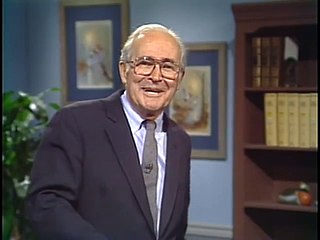A Quote by Gore Vidal
It is notable how little empathy is cultivated or valued in our society. I put this down to our traditional racism and obsessive sectarianism. Even so, one would think that we would be encouraged to project ourselves into the character of someone of a different race or class, if only to be able to control him. But no effort is made.
Related Quotes
I was thinking about framing, and how so much of what we think about our lives and our personal histories revolves around how we frame it. The lens we see it through, or the way we tell our own stories. We mythologize ourselves. So I was thinking about Persephone's story, and how different it would be if you told it only from the perspective of Hades. Same story, but it would probably be unrecognizable. Demeter's would be about loss and devastation. Hades's would be about love.
From the moment we are born, the world tends to have a box already built for us to fit inside. Our umbilical cord never seems to be severed; we only find new needs to fill. If we disconnected and severed our attachments, would we shatter our confinements and expand beyond our shell? Would the world look different? Would we recognize ourselves? Are we the box that we are inside, and to be authentically 'un-contained' would we still be able to exist? This is the irony of containment. As long as we don't push on the walls of our surroundings, we may never know how strong we really are.
It's so hard for me to even acknowledge America without talking about race. If you look at our society, if you look at the prisons, if you look at the poverty and which side of the line the majority of people are, we have to acknowledge how we divide ourselves up, that there's racism alive in this country. And it's not in the law. It's in our minds. And that's what we have to actively battle.
There is nothing so great or ideally beautiful as the action of God in the human soul. If we knew how to discern it in ourselves, our lives would be transformed. If we could see it in others we would love even more him who is always in our midst, who acts in us, and who works marvels - these spiritual renewals that we shall understand only in eternity.
If Jesus Christ were to sit down with us and ask for an accounting of our stewardship, I am not sure He would focus much on programs and statistics. What the Savior would want to know is the condition of our heart. He would want to know how we love and minister to those in our care, how we show our love to our spouse and family, and how we lighten their daily load. And the Savior would want to know how you and I grow closer to Him and to our Heavenly Father.
We honor ambition, we reward greed, we celebrate materialism, we worship acquisitiveness, we commercialize art, we cherish success and then we bark at the young about the gentle arts of the spirit. The kids know that if we really valued learning, we would pay our teachers what we pay our lawyers and stockbrokers. If we valued art, we would not measure it by its capacity to produce profits. If we regarded literature as important, we would remove it from the celebrity sweepstakes and spend a little money on our libraries.
For a man’s life would become intolerable, if he knew what was going to happen to him. He would be made aware of future evils, and would suffer their agonies in advance, while he would get no joy of present blessings since he would know how they would end. Ignorance is the necessary condition of human happiness, and it has to be admitted that on the whole mankind observes that condition well. We are almost entirely ignorant of ourselves; absolutely of others. In ignorance, we find our bliss; in illusions, our happiness.
Our actual lives, including our values, our social relations, our self-conceptions, and many of our concepts, are pervasively shaped both by the knowledge and by the fact that we will someday die - that we are subject to extreme temporal scarcity. There is no reason to think that, if we were immortal, the same things would continue to matter to us. We have little or no idea what, if anything, would matter to immortal beings, or even how such beings would think of themselves.
Empathy occurs when we suspend our single-minded focus of attention and instead adopt a double-minded foucus of attention. When our attention lapses into single focus, empathy has been turned off. When we shift our attention to dual focus empathy has been turned on. Empathy is our ability to identify what someone else is thinking or feeling and to respond to there thought or feelings with an approriate emotion. Empathy makes the other person feel valued, enabling them to feel that their thoughts and feelings have been heard.
Our mother always taught us to be in control of our voice and our bodies and our work, and she showed us that through her example. If she conjured up an idea, there was not one element of that idea that she was not going to have her hand in. She was not going to hand that over to someone. And I think it's been an interesting thing to navigate, especially watching you do the same in all aspects of your work: Society labels that a control freak, an obsessive woman, or someone who has an inability to trust her team or to empower other people to do the work, which is completely untrue.
I've always wondered what it would be like if the Messiah, or Christ Returned, were actually alive and living in our society; who would that person be, how we would identify them, how would they live and what would they believe in, how would society react to them? I decided to try and tell my idea of that story.
So when we call pain a problem, we claim we do not deserve it. We are even prepared to scuttle God to maintain our own innocence. We will say that God is not able to do what He would like, or He would never permit persons such as ourselves to suffer. That puffs up our egos and soothes our griefs at the same time. "How could God do this to me?" is at once an admission of pain and a soporific for it. It reduces our personal grief by eradicating the deity. Drastic medicine, indeed, that only a human ego, run wild, could possibly imagine.






































